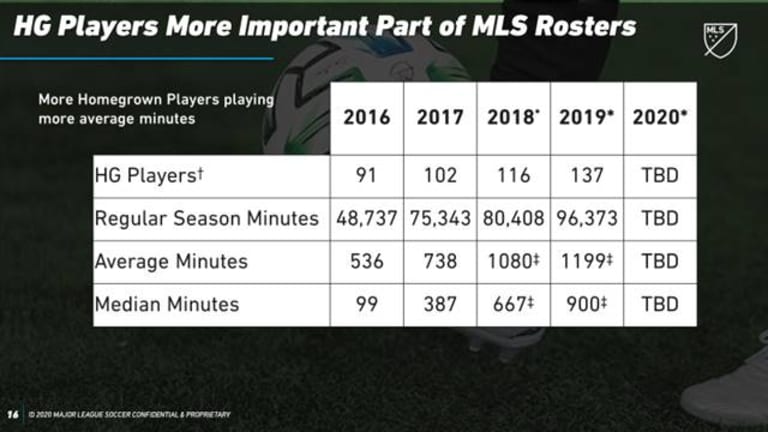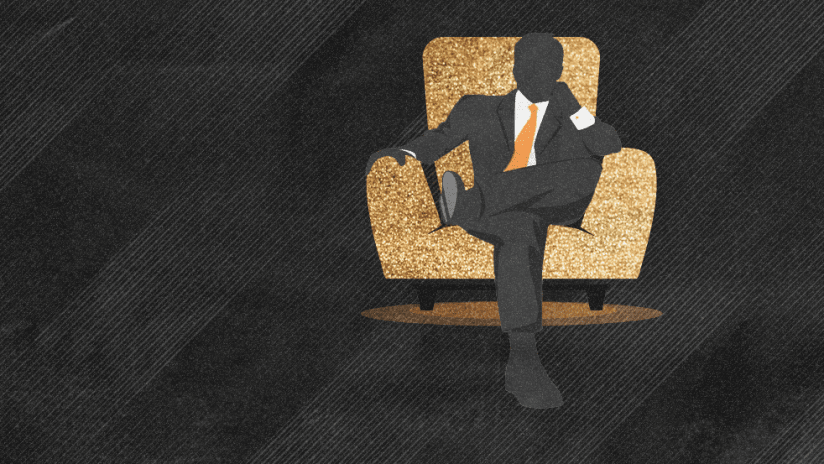This column is nominally supposed to be about what to expect from the United StatesUnder-23 roster which will head into Concacaf Olympic Qualifying just over a week from now. It's supposed to be about spinning forward to get an idea of what's to come, and understanding the strengths (there are many) and weaknesses (there are few) of the roster.
I will get to that. I promise.
But first, I want to contextualize this roster a bit, and it strikes me that the best way of doing that isn't to look at who's heading to Guadalajara for qualifiers, but rather who isn't. Specifically, the sheer volume of who's not there tells a greater story about talent development in the US.
To that end, here's a list of the age-eligible players who were too valuable to their clubs, and thus weren't released by their clubs to the US U-23s for Concacaf Olympic Qualifying in 2008:
- Michael Bradley
- Benny Feilhaber
Here's a list of the age-eligible players who were too valuable to their clubs, and thus weren't released by their clubs to the US U-23s for Concacaf Olympic Qualifying in 2012:
- Jozy Altidore
- Timmy Chandler
- Danny Williams
Here's a list of the age-eligible players who were too valuable to their clubs, and thus weren't released by their clubs to the US U-23s for Concacaf Olympic Qualifying in 2016:
- John Brooks
- DeAndre Yedlin
Here's a list of the age-eligible players who are too valuable to their clubs, and thus weren't released by their clubs to the US U-23s for Concacaf Olympic Qualifying in 2020:
- Christian Pulisic
- Tyler Adams
- Weston McKennie
- Sergino Dest
- Josh Sargent
- Gio Reyna
- Sam Vines
- Christian Cappis
- Cameron Carter-Vickers
- Chris Richards
- Brooks Lennon
Here are three other players who absolutely, positively would've been called in but not released if they weren't currently hurt:
- Antonee Robinson
- Miles Robinson
- Tim Weah
The talent differential over 12, eight and even four years is just staggering. And it's not because we got lucky with one Chrisian Pulisic (though you do have to get lucky to produce players like that), or had an influx of dual-nationals (though getting Dest, and to a much lesser extent Antonee Robinson and Cameron Carter-Vickers sure doesn't hurt). It's because there are more good, young players with clear pathways to professional playing time – mostly in MLS, but shoutout to our guys in the Bundesliga – and the combination of better academies + better talent identification + more and better professional teams willing to put those guys onto the field is the exact structure necessary to boost a program that had been failing for far too long.
We've already seen the returns at the U-20 level. The US is the only country in the world to make three straight U-20 World Cup quarterfinals, and this past tournament they accomplished that in real style. And just as important as the successes from those groups – guys like Adams, Weah and Paxton Pomykal – are the fact that it hasn't been devastating to the entire program when the likes of Gedion Zelalem didn't pan out. Or even when players like Derrick Jones or Eryk Williamson have taken longer than hoped for to get regular first-team minutes (if they ever get there at all).
Youth development in the US is now producing multiple answers at multiple spots and has done so across multiple cycles. Something has gone right. I have an idea of what it might be:

Here is a non-exhaustive list of other players who maybe weren't called up, or maybe weren't released:
- Mason Toye
- Ricardo Pepi
- Brandon Servania
- Aboubacar Keita
- Chris Durkin
- Donovan Pines
- Frankie Amaya
- Jonathan Amon
- Emmanuel Sabbi
- Bryce Duke
- Tanner Tessman
- Gianluca Busio
- Kyle Duncan
- Keaton Parks
- James Sands
- Auston Trusty
- Cole Bassett
- Mauricio Pineda
- Benji Michel
- Henry Kessler
- Dylan Nealis
- Robbie Robinson
- Matt Real
- Alex Mendez
- Sebastian Soto
Would any one of those players – guys who are already professional contributors or, in the case of Mendez and Soto, former U-20 starters – be out of place on this roster? I don't think so. Most of those guys would've been clear upgrades over the 2012 and 2016 groups, yet by 2020 they're relative afterthoughts.
Here is the official US U-23 roster for the tournament, which is scheduled to begin on March 20 against Costa Rica:
- GOALKEEPERS (3): Matt Freese, JT Marcinkowski, David Ochoa
- DEFENDERS (6): Reggie Cannon, Justen Glad, Chris Gloster, Aaron Herrera, Mark McKenzie, Erik Palmer-Brown
- MIDFIELDERS (6): Brenden Aaronson, Hassani Dotson, Richard Ledezma, Djordje Mihailovic, Paxton Pomykal, Jackson Yueill
- FORWARDS (5): Jeremy Ebobisse, Jesus Ferreira, Jonathan Lewis, Ulysses Llanez, Sebastian Saucedo
Even with all the absences above – the $65 million Chelsea winger, the $20 million Bundesliga team-of-the-week central midfielder, the 22-year-old MLS Best XI CB, the 17-year-old Dortmund wunderkind, basically the entirety of the presumed US U-23 first XI (minus goalkeeper) – this 2020 team is deeper and more professionally experienced than the last two combined. There are four guys on this roster (Glad, Ebobisse, Palmer-Brown, Saucedo) with more than 100 professional appearances. Most of the rest have more than 50, and the ones who don't are guys like Ledezma (who will be playing first-team ball at PSV before the year is done), Llanez (who will be playing first-team ball at Wolfsburg before the year is done) and Dotson (who's proved his worth at multiple spots on an MLS playoff team).
“We are extremely happy with our squad we've assembled. We think that we've got some real quality," is what head coach Jason Kreis said, and I agree with him. "We think we've got some real depth, we've got versatility and we have the necessary experience to accomplish our objectives. So, we're very, very focused on the group that we have and we're not thinking about the players that weren't able to be selected.”
Ok, now to spin forward: I think it'll be a 4-3-3, likely with Yueill at the back point conducting things from deep. I suspect there will be a bit of an internal competition amongst the three CBs to see who will start, and it wouldn't entirely shock me if Herrera gets the nod at LB over Gloster, who's really only ever played against kids. Remember, Herrera is very comfortable at LB:
I would have Pomykal and Aaronson in this midfield. Pomykal's two-way ability is devastating – we see it every week in MLS, and we saw it last year at the U-20 World Cup, especially against France when a turnover he forced became the game-winning goal – and I'd worry about the US being a little bit soft there without him. Aaronson, through two weeks of the MLS season, looks like he's maybe becoming this year's version of Pomykal. He doesn't have the same ball-winning ability to closing speed, but he got stuck in against LAFC this past weekend, scored a goal and genuinely gave them hell:
For me, Ebobisse starts at center forward. It's good to have Ferreira as a back-up false 9 in case Kreis needs to change the team's shape and tactical approach. There will be a battle to see who starts at left wing, though I'd have to give the edge to Bofo, who's starting and making a difference there for one of the better teams in Liga MX right now.
Right wing is a mystery. It might be Lewis's best spot in an open game, but the US are unlikely to play any open games in this tournament. Llanez is a pure left winger, as is Saucedo. Mihailovic is playing on the left wing so far for Chicago. The few times Ferreira and Ledezma have been used wide by their clubs, it's been on the left.
All of that perhaps makes it more likely that Pomykal will be moved out of the central midfield and out to right wing, where he's very comfortable.
I do, however, think that's a mistake. We know how Cannon plays in Gregg Berhalter's system (and to be clear, Kreis will be running Berhalter's system): He will bomb up the flank and hit pull back crosses or near-post crosses, or even draw a penalty as he did against Costa Rica last month in a full USMNT friendly. So whoever's playing on the right wing doesn't necessarily need to be a true winger, but just a guy who can be comfortable out there defensively and clever about the spots he operates in when in possession/transition/attack.
In goal, Ochoa's the youngest but also backstopped the USL champions and has, in my opinion, the most upside. I suspect he'll win that position battle.
At that point, it's up to the group as a whole to turn from winning battles to winning games. They have a chance to be the first US U-23s to make the Olympics since 2008. If they don't – no matter who was or wasn't available – it's a failure.











